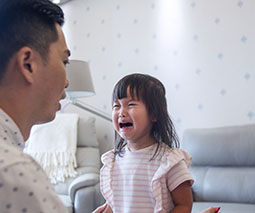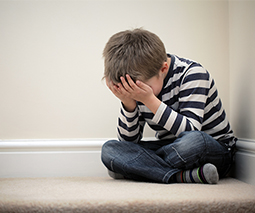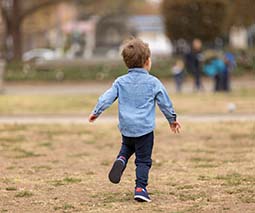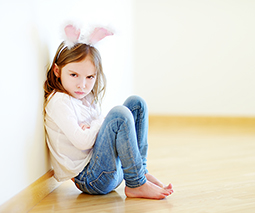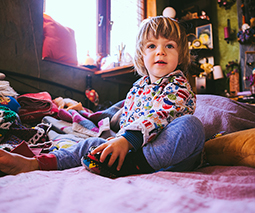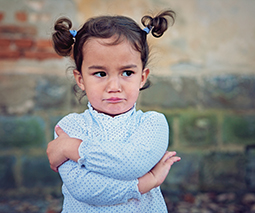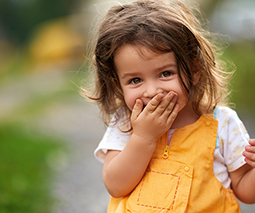“My toddler keeps hitting me”: How not to be your toddler’s punching bag
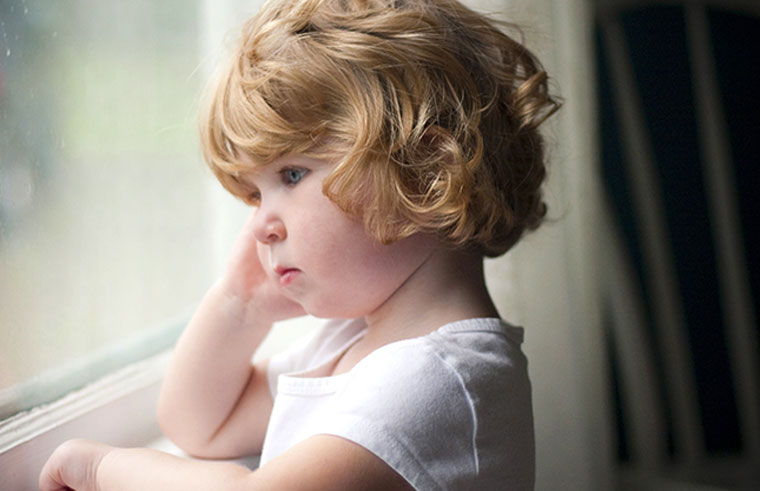
One minute your sweet baby treats you like the absolute apple of her eye and showers you with kisses. The next, she’s taking swipes at you and kicking your shins like a very tiny prize fighter.
It’s a horrible experience, not made easier even with the knowledge that this is a really normal toddler phase.
Parenting expert Maggie Dent says do not despair – children do outgrow this phase.
She notes that this kind of behaviour — like tantrums — is triggered by unmet needs and that their brain activity then prompts them to act out. They experience an overload of cortisol and their amygdala goes nuts … in a nutshell, it’s a primal reaction that little people can’t easily control.
With that in mind it seemed like a very good idea to go through some strategies for dealing with these baby bust-ups. So let’s do that.
Here’s what you should NOT do to calm hitting
Don’t smack
Try not to respond aggressively. That whole “an eye for an eye” thing belongs in biblical times. If you respond to a slap with a slap, you are reinforcing aggression. Also? Smacking is just never okay.
Don’t shame
Try not to shame your child for their behaviour. This sort of aggression in children indicates that there is something big going on in that little person. Confusing them with even more hard-to-cope-with feelings is going to make things worse.
Here’s what you should try to do
Try to see this as an opportunity, albeit a painful one. When your child lashes out, they’re putting out a very strong distress signal. They don’t have the emotional awareness or impulse control to deal with whatever’s distressing them productively. So their frustration, anger or sadness is expressed as aggression. The target of that aggression? The safest person in their world – a parent.
So how is this an opportunity you might be asking, as you rub your bruised shin and have a little sob about your tiny monster?
Well, it’s a chance to zero in on the things that trigger their meltdowns, develop a strategy to deal with them and throw in some emotion coaching (perhaps for you both) in the process.
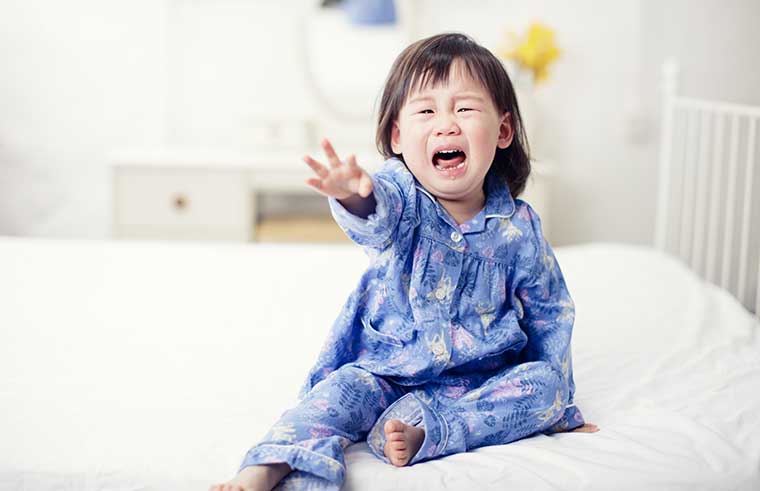
1. Be sensitive and keep everyone safe
Before you can do any of that, however, you need to disarm your child and protect yourself.
Get down on their level and hold them gently but firmly. Stopping everyone from getting hurt is important. Do this as kindly as you can, and explain in strong terms that you understand they are upset, that you love them, but that hurting others is not okay.
2. “We do not hurt other people.”
If your child is too angry, take them to a safe space where they can’t hurt themselves or you, again letting them know that you understand how they are feeling and are concerned for them, but that lashing out is not acceptable.
If you are in a public place, head to somewhere more private. Having an audience can escalate the situation and make it hard to parent effectively. It’s also really hard not to feel judged. Your child also needs to be protected and respected when they’re feeling their worst, even if they are being a little tyrant.
This is your moment to step up and be a confident, compassionate and strong parent. Try your hardest to take it and note that it might take a while.
3. Introduce a circuit breaker
Whether it’s a drink or a snack or a special comforter, once your child has stopped hitting or kicking, introduce something that will help them feel a little better and shift the focus from their aggressive behaviour.
4. Snag their attention with empathy
As your child begins to calm down and feel better, snag their attention by focusing in on the issue that triggered the aggression and respond with empathy.
“I’m sorry you’re feeling so awful. The park is so much fun and it’s hard to leave, isn’t it?”
This is not easy to do under pressure, but if you can remain calm under fire, lock eyes with your child and let them know that you understand, you’ll also be strengthening your emotional bond with your child.
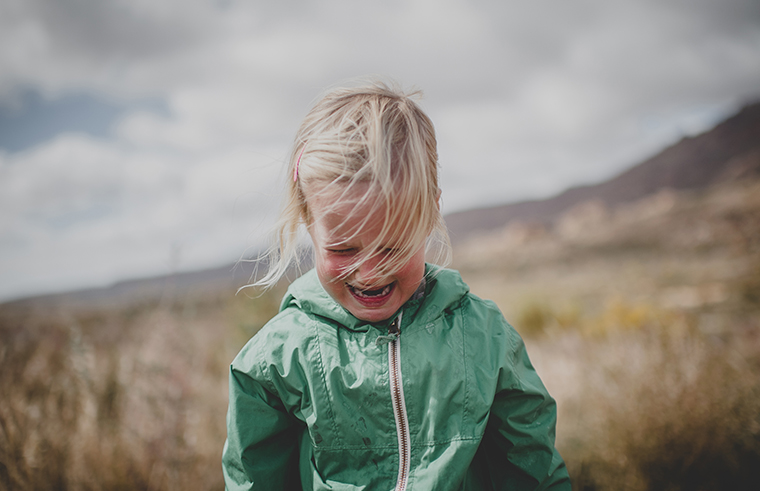
5. Talk things through
Once your child is feeling more like themselves and you are feeling less stressed out, talk through what happened with your child.
Reinforce that physical aggression is never okay and help your child connect the dots between their feelings and their (painful) actions.
“We do not hurt other people, even when we are feeling really upset. When you feel like hurting someone, let Mummy know that you are feeling out of control and I can help.”
6. Tune into your child
Watching for distress cues, responding to your child as fairly and as empathetically as you can, and putting them first when things are going pear-shaped are all excellent ways to head this sort of behaviour off at the pass.
Prompt your child if you see things getting ugly: “Are you starting to feel a bit out of control? Can I help you feel better? Should we take some time out together and work out what to do? Should we take some deep breaths together?”
7. Set you and your child up for success
Making sure your child has enough one-on-one time with you, is getting enough sleep, is eating well and being stimulated in terms of play will all go a long way towards helping your child better regulate their emotions. Establishing an eat-play-sleep routine that is age appropriate will help your child feel more peaceful and content.
8. Forgive your child (and yourself)
If things do go pear-shaped try not to dwell on it too much afterwards. This sort of behaviour is normal in toddlers and not an indicator of bad parenting.
Rather than berating yourself, think about what you could have done to manage your child’s (or your own) behaviour and learn from it. Then forgive yourself and don’t ruminate too much over your child’s meltdown either. Tomorrow is another day.
